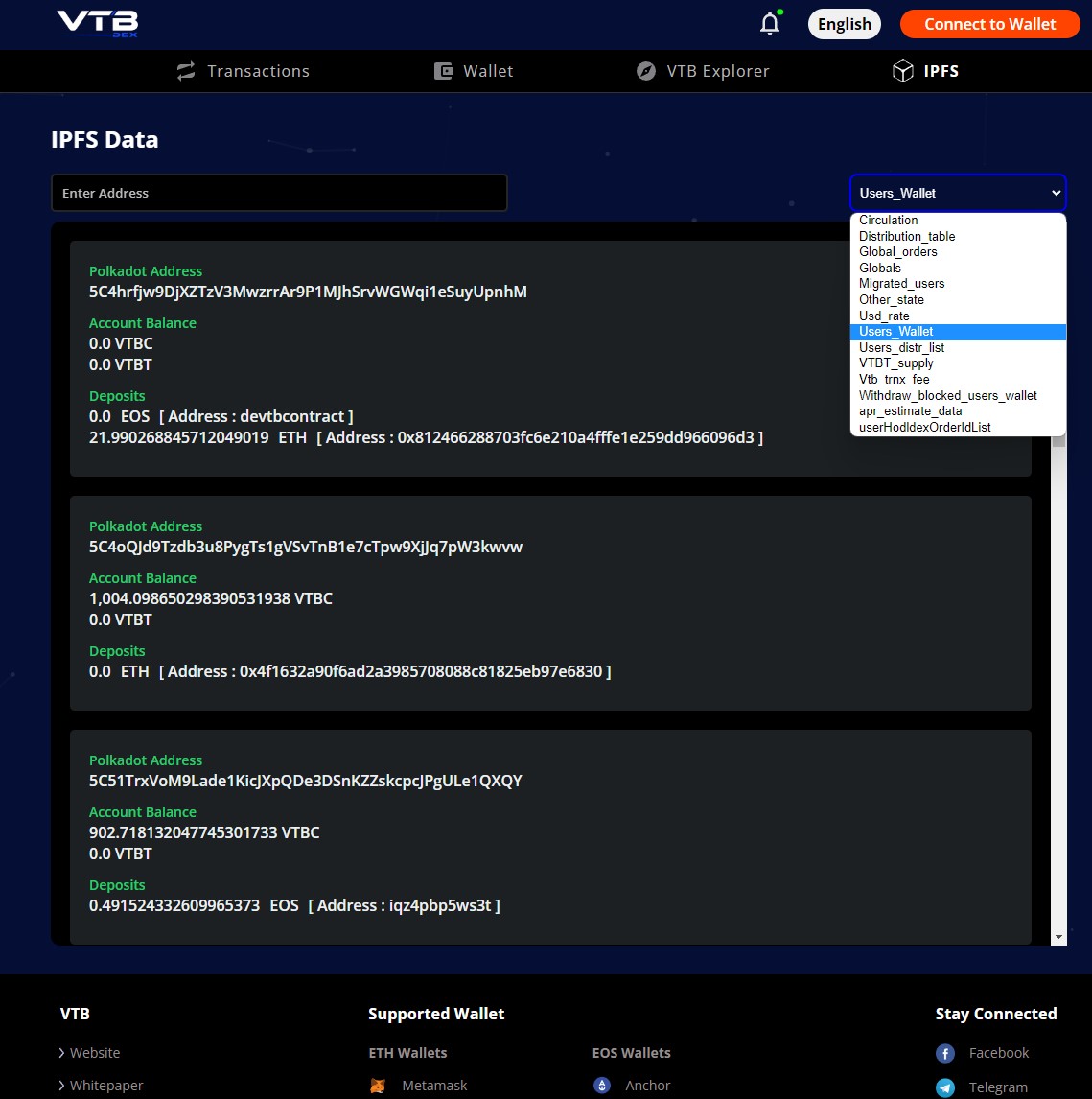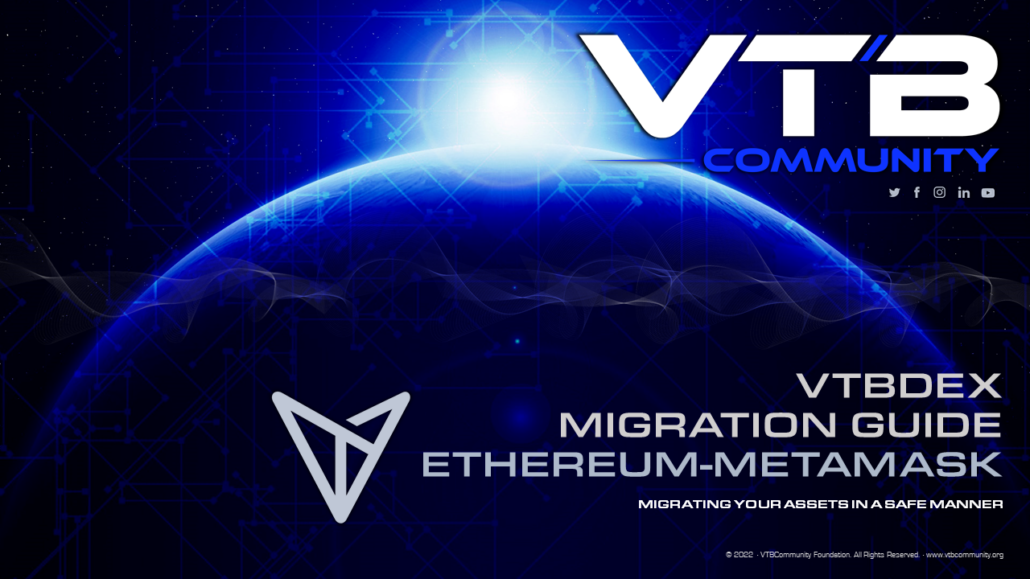 VTBDex IPFS Integration
VTBDex IPFS Integration
Date: June 3rd, 2022
Available at https://vtbdex.com/ipfs
VTBCommunity Announcement
Dear VTBCommunity members,
We are thrilled to announce that the VTBDex has successfully integrated IPFS and included a tab on its menu for ease of access!
In this article, we will be explaining what IPFS is, how blockchain technologies face in terms of data storage and management, and finally, how the VTBDex makes use of IPFS in the most amazing ways!
What is IPFS?
The InterPlanetary File System (IPFS) is a protocol and peer-to-peer network launched in 2015 by Juan Benet, founder of Protocol Labs, with the purpose of storing and sharing data in a distributed file system. It uses content-addressing to uniquely identify each file in a global namespace connecting all computing devices in a secure, transparent, and scalable manner.

The Challenges of Blockchain Technologies
It is important to understand that blockchain technology in general, suffers from several fundamental issues related to how it stores such large amounts of data to operate proficiently. It regularly holds complete instruction data on the blockchain which increases its size, slows down replication speed, downgrades performance, and ultimately increments computation expenses.
By integrating IPFS into blockchain processes with clever methodologies, as the VTBCommunity has been able to achieve, users can consult information and complete as many transactions per second as required at any given time, competently resolving most, if not all of the issues mentioned above.
“The VTB project has chosen to employ blockchain technology for various reasons. The challenge was to deliver transparency and auditability, only delivered by public blockchains. Therefore, since none of the current public blockchains met the Foundations criteria, the Foundation built a custom blockchain for all the project’s requirements that will come in stages.” – VTBCommunity White Paper
How is IPFS used on the VTBDex?
As described in the VTBCommunity White Paper, the IPFS protocol allows the VTB Blockchain to function in full transparency and with improved scalability, stability, and security. It does so by performing back-ups of the blockchain data on IPFS and using the Ethereum public chain to hold the IPFS address.
The VTB system runs on a methodology using a Layer-2 coupled with a sidechain pattern, resulting in fast and flexible performance and maintaining a very low operational cost, while ensuring its users’ private/public key pairs are operating under their control. This makes the most of the system with improved scalability and enables great management of the entire project.
The various chain interactions which incur operational costs, including cloud-based services, chain maintenance, APIs, and the transactions themselves, are completely covered and accounted for in the present VTB system by means of intelligent and cost-effective procedures. This is carried out by not reporting every transaction, but rather by submitting the runtime state to an IPFS address and therefore to Ethereum’s expensive chain, clearly grouping all transactions for a specified time.
“A multi-source configuration is used for APIs, such as Infura for ETH and Block Producer snapshots and or APIs for EOS, to reduce risk and prevent any breaking changes. In conjunction, external smart contracts and accounts are used to accept deposits of their respective native currency. The Ethereum smart contract will also keep a stored IPFS address to allow users to constantly view the VTB Blockchain and verify their VTBC balances through third-party applications.” – VTBCommunity White Paper
The new IPFS Tab on the VTBDex
The VTBDex publishes balances, prices, and other critical information at least once per day to IPFS so that members can verify their balances independently. Using JSON files, an open standard file/data interchange format used to store and transmit data objects, the VTBDex circulates data to IPFS to keep transparency and reliability always accessible to the public.
Even though this data transmission process to the IPFS protocol is taken care of quite effectively as a regular VTBDex operation, the data becomes bulky and awkward to read in its JSON format. For this reason, an IPFS tab on the VTBDex has been added to display up-to-date “snapshots” of the most recent data sent to the IPFS protocol in order to enhance the overall experience of our users.

Image source: https://vtbdex.com/ipfs
Moving Forward
With this IPFS upgrade, VTBDex users will benefit from having access to a better-looking IPFS interface and easily navigating through IPFS-published information with convenient search functions.
Visit the VTBDex and have a look at the newly added features of IPFS integration at vtbdex.com/ipfs.
 VTBDex & USDT (Tether)
VTBDex & USDT (Tether)



